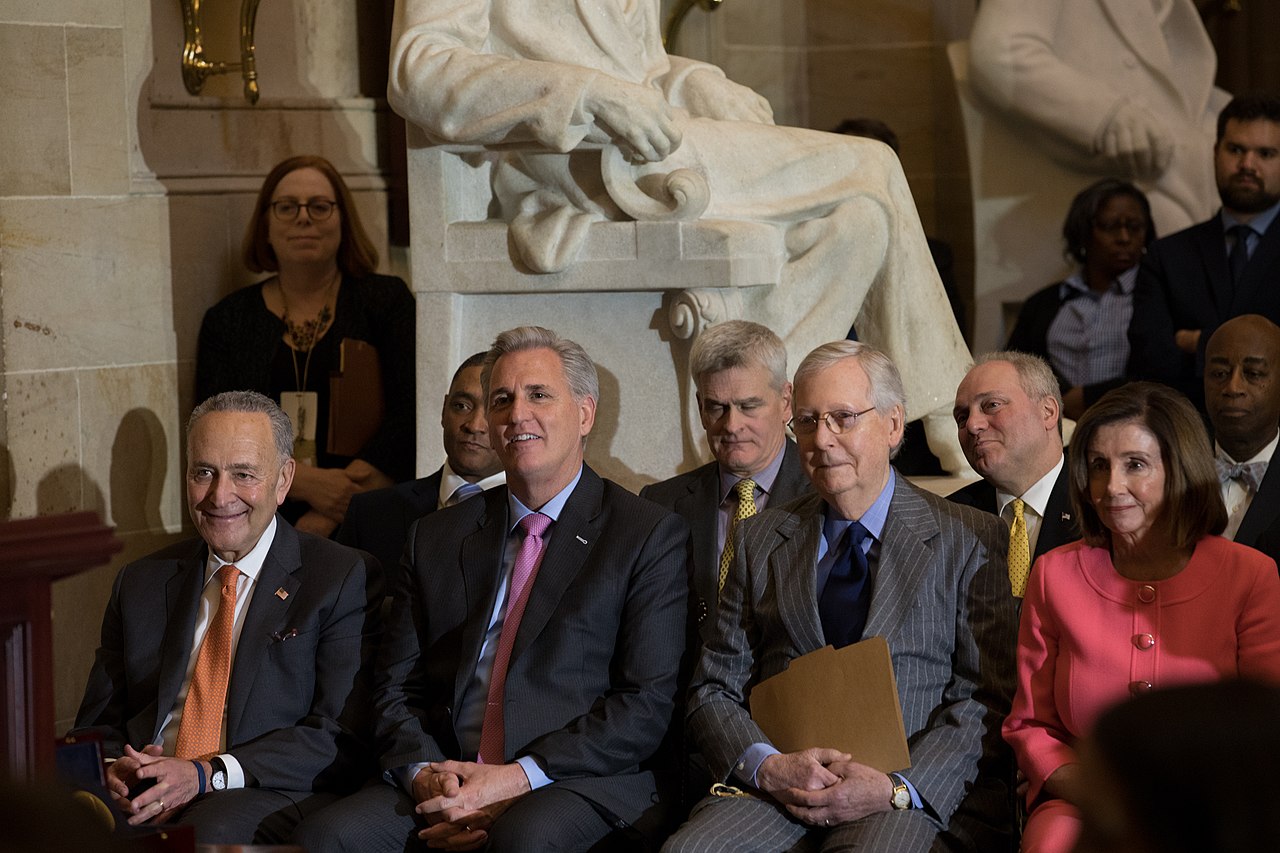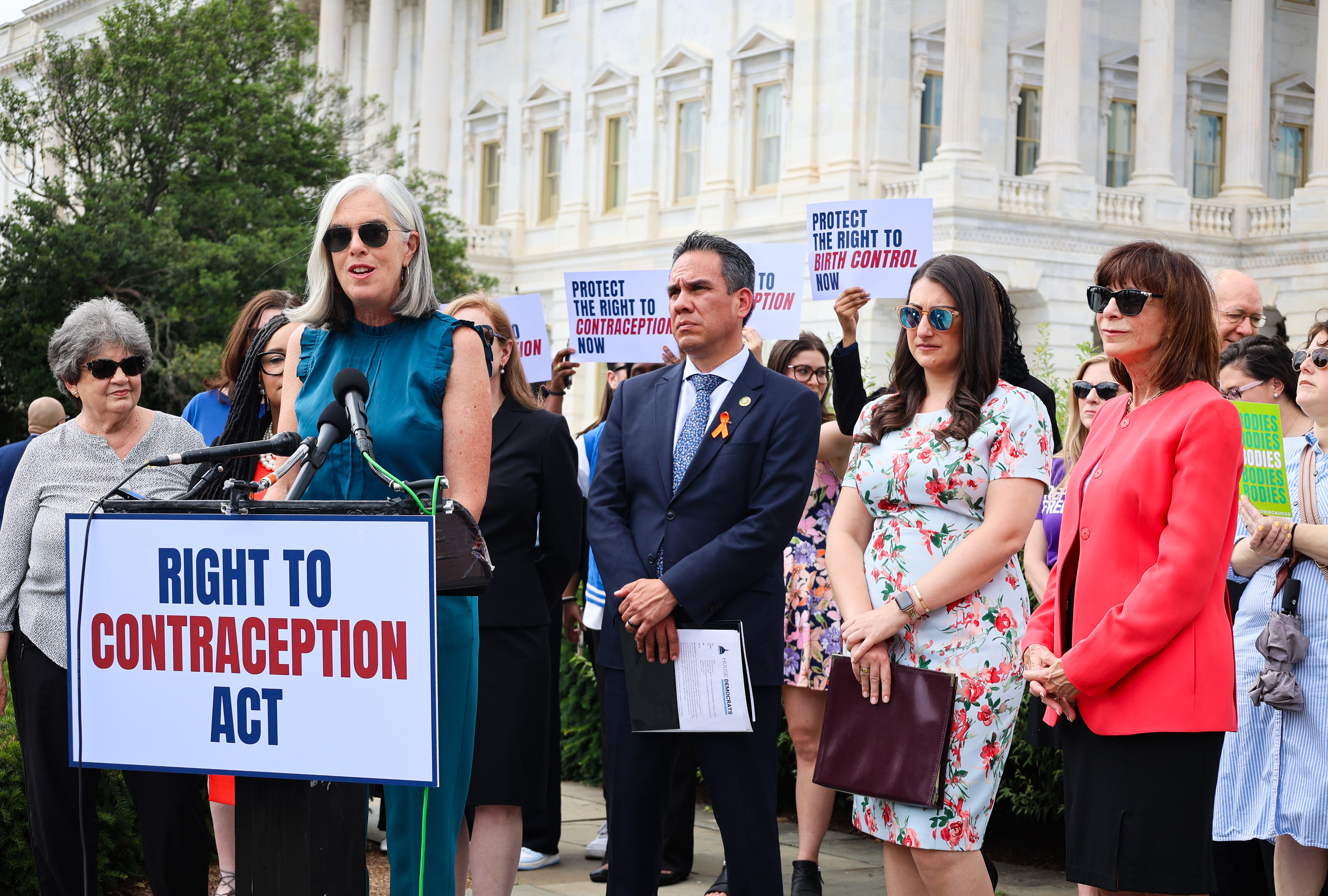A bill to shore up the rights to access contraceptives was unable to advance in a U.S. Senate vote yesterday.
Congressional Democrats forced a vote ahead of the November elections in order to try and get eyes on the issue of reproductive rights.
The Right to Contraception Act

The Right to Contraception Act failed to meet the 60-vote minimum to continue to a full debate although it received 51 votes of support.
The bill would protect access to birth control nationwide but received 39 votes against in this hotly contested topic.
Post Roe v. Wade Fight

The issue of reproductive rights is a fraught topic in U.S. politics following the overturning of Roe v. Wade by the Supreme Court in 2022.
Roe v. Wade had previously ensured nationwide access to abortions but now it is approved on a state-by-state basis.
Trump Accused of Supporting Ban

Last month presumptive Republican presidential nominee Donald Trump faced backlash after political rivals claimed he would consider banning birth control if elected.
Trump publicly responded however stating that he did not support this idea of preventing access to birth control.
Republican Governors Threats

Democrat Chuck Schumer highlighted yesterday how states with Republican governors like Nevada and Virginia have already vetoed votes to ensure access to contraception.
These moves from the conservative representatives have led the charge from Schumer and other Democrats to push for federal legislation.
Schumer’s Comments on the Right

On Wednesday Schumer stated: “We are kidding ourselves if we think the hard right will stop at overturning Roe.”
A legislative attempt to force a vote on the same bill by the House of Representatives Democrats would face minimal chance of success in the Republican-dominated chamber.
Democrat’s Appeal to Republicans

No. 2 House Democrat Katherine Clark appealed to Republicans saying they “have a choice to make: They can put aside their MAGA ideology and join us (to) get this bill passed or they can triple down on their anti-freedom extremism.”
This may cause some Republicans to work across party lines as Representative Marc Molinaro stated he would cosponsor the legislation although he is the first Republican to come forward in support of the bill.
Senate Republicans Voice Dissent

According to Republican Senator Bill Cassidy: “It’s an election year in which a Democratic incumbent president is running behind, so a decision has been made to raise abortion to a high profile.”
His critique of this alleged strategy by the Democrats was followed by his appeal that “You can’t normalize a procedure where the intent is to end a life.”
Contested Topic

According to a Reuters/Ipsos survey in May of almost 4,000 U.S. residents 18 and older, a majority cannot seem to agree on how the presidential candidates tackle the abortion issue.
While 37% of people surveyed agreed with Joe Biden on his views only 27% said they supported Trump’s handling of the abortion rights topic.
IVF Bill

Next week Schumer says that Democrats would be voting on a bill to protect in-vitro fertilization, another contested issue in the remit of reproductive rights.
This was already previously voted against by Senate Republicans as a court in Alabama made the treatment effectively illegal in the state.
Some Republicans Breaking Ranks

The fact that the vote for contraceptive rights was only nine short of succeeding can be attributed to some Republicans breaking ranks.
Among them were Alaska Senator Lisa Murkowski and Maine Senator Susan Collins who voted to advance the legislation.
Argument for Bi-Partisan Agreement

GOP members contended that the 12-page bill which would offer protections for accessing contraception should the Supreme Court overturn related cases, was purely politically motivated.
In their argument, GOP senators claimed that if Democrats truly wanted to shore up rights to accessing contraception they would work on a bi-partisan bill with the Republicans.
This bill is just one of many recent cases of reproductive rights coming to the fore of the American consciousness and is sure to be an important issue on the campaign trail this fall.
